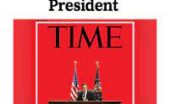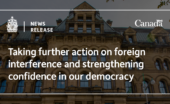Molly Minturn - My family is heartbroken to share that my father died in surgery on Monday, Feb. 10. It…
Wednesday Night #1717
Written by Diana Thebaud Nicholson // January 27, 2015 // Wednesday Nights // Comments Off on Wednesday Night #1717
We start with the sad news that Ron Walker, husband of our dear friend and Wednesday Nighter, Margaret Lefebvre, has died of Alzheimer’s. While he has been absent from Wednesday Night in recent years, long-time attendees will remember him as a stimulating voice, often presenting original, critical thoughts. AND it was he who stumped the facilitator from the Spicer Commission at Wednesday Night with one word, “water”.
The Davos circus is over and with it the blizzard of articles, analyses, think pieces, opinion pieces (not always the same as ‘think’) by everyone you have and have not heard of. One cannot avoid a certain skepticism about the effectiveness of the assembly of 4,000 people (and their 1,700 private jets). We would like to see an annual score sheet – what was ‘promised’ in the previous exchanges and what concrete results can be identified a year later. As Tony Deutsch would say, “a topic for a PhD thesis” or more than one! We do not hold our breath.
The Oxfam report Wealth: Having it all and wanting more placed inequality firmly on the table and many scrambled to align themselves with the critics of a global system that permits the 1% to own 48% of the world’s wealth. Then, in response to Christine Lagarde’s comments that the gap between rich and poor was damaging global prosperity, along comes Sir Martin Sorrell stating that economic equality does not bring prosperity. In contrast, Brett House presents excellent arguments on why dealing with inequality needs to be part of the global discussion.
Doing Davos 2015 at least disabuses readers of some of their images of all of the 4,000 enjoying a cossetted existence throughout the event, while still maintaining enthusiasm for the intellectual exchanges.
Also worth a glance:
Davos and the Future of Global Governance by Alejandro Reyes
David Rothkopf on Foreign Policy: Still Waiting for Davos Woman — The Alpine retreat is both absurd and worthy — but can’t achieve its goals as long as it is primarily a guy thing
Meanwhile, a hot topic at Davos and around global financial circles was last Thursday’s news that the ECB launched 1 trillion euro rescue plan to revive euro economy. All other commentary aside, we love Peter Berezin’s brisk summary:
“The iPhone’s “dictation” feature, which allows users to dictate emails and text messages rather than type them out, has improved a fair bit since it was launched in 2010. Yet, it still has a ways to go before it becomes fully reliable. For example, if you say “Mario Draghi” into the microphone, you are likely to get one of three options: Mario Dragon, Mario Draggy, or Mario Druggie.
Inappropriate as they may be, these three variants neatly summarize the different ways investors see the ECB President. His most ardent supporters regard him as a dragon willing to stand up to Germany and breathe fire into the euro area’s frozen economy. His detractors, in contrast, either see him as an overly-cautious bureaucrat who has dragged his feet in adopting the more aggressive measures of the Federal Reserve and the Bank of Japan, or as a reckless money printer who is pushing the euro area along the path to the Weimar Republic.”
By Monday, the financial gurus had another preoccupation as the result of Sunday’s Greek elections dominated Greece’s Syriza To Form Government After Election Victory. As the Economist puts it, Greece turns, Europe wobbles. The Financial Times worried: Will Tsipras be a Lula or a Chávez?, but Paul Krugman viewed the results as positive “now that Mr. Tsipras has won, and won big, European officials would be well advised to skip the lectures calling on him to act responsibly and to go along with their program. The fact is they have no credibility; the program they imposed on Greece never made sense. It had no chance of working. … in calling for a major change, Mr. Tsipras is being far more realistic than officials who want the beatings to continue until morale improves. The rest of Europe should give him a chance to end his country’s nightmare.” Whatever else, we love Mr. Tsipras’ description of austerity as ‘Fiscal Waterboarding’ and suspect it will rapidly become a staple of the economists’ vocabulary.
President Obama’s visit to India has been hailed as deeply symbolic; Cleo Paskal writes that Strategists must break out of ‘areas’ to find options — Some US ‘India experts’ see the country primarily in terms of the extremely limited Indo-Pak hyphen. Perhaps they have started to do so? Obama, Modi Declare Era Of ‘New Trust’ In US-India Relations and they seem to have enjoyed a really good visit. Our friend Commodore Uday Bhaskar is also upbeat, writing that The deal’s positive orientation to the bilateral ties will impact other areas of US-India cooperation that have lain moribund
From the Middle East a mixture of items, mostly not very promising. In the wake of the death of King Abdullah of Saudi Arabia, The Atlantic reminds us why America is stuck with the Saudis as allies despite their horrendous human rights record. Yemen meanwhile is falling apart – not that it was ever very stable – and the world doesn’t appear to be noticing. In the Kurds’ battle with ISIS/ISIL, some good news as the Kurds take control of the strategic city of Kobani. And then there are the problems faced by Turkey where past and future collide — ISIS, Syrian refugees and Kurdish unrest all factors in the year ahead, not to mention that this year marks the centenary of the killings of Armenian Turks which we call genocide, but the Turks will not.
Sarah Palin – what would we do without her for comic relief?- says she’s ‘seriously interested’ in 2016 campaign which should enliven the Republican race , especially given that her Bizarre Iowa Speech Gets Thanks — From The Democrats
For those who have been following the CBC/RBC/Amanda Lang story, she published a lengthy piece Public trust matters more than speaking fees in the Globe & Mail on Friday the 23rd in which she stated “It did not occur to me that others would question my motivation. That they would raise doubts about my integrity. That they would believe my perspective on this story was affected, for example, either by a relationship or by the fact that I have spoken for pay at events organized by business groups and companies.” For a business reporter, does this not appear a bit naive?
Canada’s Parliament is back at work (in fairness, many parliamentarians work very hard in their ridings when there is a recess) and Mr. Harper is facing questions on his delayed, but-to-be-balanced budget.
However, the really important and no doubt inflammatory issue is the search for and designation of Canada’s National Bird. In case you overlooked the news, The Royal Canadian Geographical Society is asking Canadians to weigh in online and choose the species of winged creature that is worthy of the national designation. This will be a hotly contested race. The choice is far from obvious, it seems, although there are those who wonder why the Canada Goose is not automatic. But then wouldn’t we have to change (scrap) our beloved loonies and do we really want ‘goosies’? Do read A national bird? How about that one with ‘Canada’ in its name?. We confess to a bias for the second choice Snowy Owl and think we could live with an ‘owlie’ for our currency.



